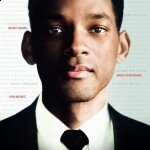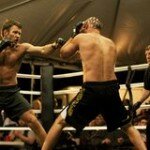There’s a memorable scene in the 1999 sci-fi hit The Matrix where the protagonist Neo is plugged into a machine that “uploads” a combat training program directly into his brain. After briefly twitching and turning, his eyes dart open and in a self-assured whisper, he says “I know Kung-Fu.”
If only Jayden Smith’s character Dre in Harald Zwart’s remake of the 1984 classic The Karate Kid learnt Kung-Fu half as fast as Neo. Clocking in at a whopping 140 minutes, this supposed family film is almost an hour too long. The numerous children in the audience – who, quite honestly, shouldn’t have been there given the film’s ‘M’ rating — were running amuck through the aisles long before Dre even pulled off his first high kick. Neo was dodging bullets and saving humanity by then.
Perhaps you’re wondering why I’m talking about Kung-Fu when this film is, obviously, called The Karate Kid. Well, that would be because there’s no actual karate depicted in The Karate Kid. That would have made too much sense. Instead, it’s all Kung-Fu, and that’s not the first thing to have changed from the original film. The story now takes place in exotic Beijing rather than a sun-drenched Los Angeles, and the protagonist is now an actual 12 year-old kid rather than a teenager (so at least the title’s half right). While the new setting makes for an eye-catching backdrop, it does little to affect the way the core story unfolds.
Dre (Smith) and his overzealous mother (Taraji P. Henson) move from Detroit to Beijing in a hope of starting afresh, but within minutes of meeting the locals, Dre is brutally bullied by a local boy named Cheng (Zhenwei Wang and his sole angry-faced expression). When Dre discovers Cheng is a star student at a strict Kung-Fu school, he seeks out his own martial arts mentor in a mournful maintenance man named Mr. Han (Jackie Chan). The two establish an unlikely friendship while training for the Junior Kung-Fu Championships where Dre plans to face his fears and stand up to Cheng.
Arriving at the point where Dre begins his training – you know, where the actual plot kicks in – takes the better of an hour. It’s quite an uncomfortable hour, too, considering how violently depicted the bullying scenes are. Perhaps if these kids were a few years older, I’d commend director Harald Zwart for truthfully depicting the horror of school yard bullying. But they’re not teenagers, they’re 11- 12 year olds. At that age, I recall the most heinous acts of bullying involved stealing trading cards and calling each other nasty names. Not breaking each other’s ribs…
Excessive pre-teen violence aside, The Karate Kid is your stock-standard underdog film, making no effort whatsoever to deviate from the same old zero-to-hero formula. If anything, it just indulges in it, prolonging the lead up to the big tournament with more mechanized plotting and syrupy character relations. I’m not talking about the bond between Dre and his mentor Mr. Miyagi Han; their friendship was central to the original’s success and is almost as strong here, aided considerably by Chan’s surprisingly understated performance. No, I’m talking about the cute but superfluous romantic sub-plot between Dre and schoolyard-crush Mei Ying (Han Wen We), which takes up far too much screen time given how little it contributes to the plot.
![the_karate_kid07[1] the karate kid071 e1278945705528 600x286 The Karate Kid [2010] (Review)](/wp-content/uploads/the_karate_kid071-e1278945705528-600x286.jpg)
If you’re still awake by the time the big tournament arrives, you’ll be rewarded with some long overdue thrills. Kung-Fu tends be a more fluid martial art than Karate, making these duels more exciting than they were in the original. That being said, cinematographer Roger Pratt has chosen to use the ‘shaky camera’ style to capture the action, while editor Joel Negron cuts on nearly every impact. It’s not horrible, but it does detract from the natural grace of Kung-Fu, which is better suited to longer and smoother takes.
A production credit to both Will Smith and Jada Pinkett Smith suggests that The Karate Kid exists primarily to launch the career of their son, Jayden. In that case, the film can be seen as a minor success. Jayden, who was only 11 years old at the time of filming, commands the screen with the same effortless charm of his father and is just, just enough to hold this tediously overlong film together.
 Follow the author Anders Wotzke on Twitter.
Follow the author Anders Wotzke on Twitter.

![The Karate Kid [2010] (Review)](/wp-content/uploads/the_karate_kid211-e1278945308918-700x392.jpg)



![Chocolate [Chokgohlaet] (Review) Chocolate [Chokgohlaet] (Review)](/wp-content/uploads/chocolate_3_7681-150x150.jpg)










